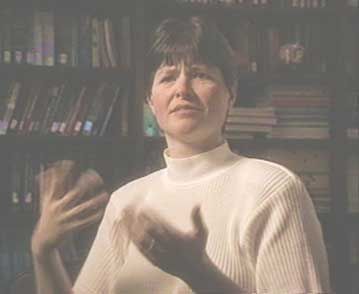Sound and Fury
 I recently watched the film "Sound and Fury" in which the question was raised as to whether or not deafness was a disability. I was especially struck by it, because it seemed like such a silly question. Of course deafness is a disability. There is something very strange going on, but I think this debate shows something about how modern ethical arguments are not working. There is an attempt to associate anything one wishes to refute with a very vaguely defined term "nature", argue that nature has been refuted by Darwin, and then, by reductio ad absurdum, complete the refutation or at least show that the position is socially constructed.
I recently watched the film "Sound and Fury" in which the question was raised as to whether or not deafness was a disability. I was especially struck by it, because it seemed like such a silly question. Of course deafness is a disability. There is something very strange going on, but I think this debate shows something about how modern ethical arguments are not working. There is an attempt to associate anything one wishes to refute with a very vaguely defined term "nature", argue that nature has been refuted by Darwin, and then, by reductio ad absurdum, complete the refutation or at least show that the position is socially constructed.I am going to define a disability the old-fashioned way. It is something that either one cannot do or can only do extremely badly that a large majority human beings can do. I add the "that most human beings can do" to exclude inability to fly or destroy stars with my fists from definitions of "disability".
Here is where things become complicated. Some of the things a deaf person cannot do cannot be done because the world has been designed for hearing people. For example, if everyone were deaf, then deaf people would have no trouble understanding lectures, since they would all be signed. Deaf people wouldn't be hit by cars that honk at them, since cars would use flashing lights instead (although they'd only work if the person in danger is facing the car). As such, deafness is not per se the inability to communicate or the inability to be warned. It is, quite simply, the inability to hear. Most of the difficulties that deaf people suffer from are socially constructed.
However, this argument does not show that the disability is socially constructed. There is a connection between the inability to communicate with hearing people and the inability to hear. Hearing people could use spoken language or use sign. However, hearing people use spoken language because it has certain advantages. Most importantly, it can be used without facing the speaker, which enables 360 degree communication. Also doesn't force the speaker to choose between speaking and using one's hands. It is true that there are some slight advantages to sign language, such as speaking without disturbing anyone or losing one's voice. However, the advantages of spoken communication outweigh sign to such a degree that no hearing culture has ever chosen sign as its primary mode of communication. Given the choice between sign and spoken communication, everyone has chosen spoken because it makes communicating easier. Therefore, deafness makes people communicate less efficiently. Hearing people always have the option of doing things the way deaf people do, but they choose not to. This socially constructs more problems for deaf people, but the constructions have the natural basis of improved ease or efficiency.
Further, not being able to hear bring about some socially constructed problems, but not all disadvantages are socially constructed. For instance, hearing falling furniture, or a thief or a baby crying are all beneficial, and none are socially constructed. This doesn't exclude the simple pleasure of hearing sounds itself. Not including music, there is the sound of rain falling or leaves rustling. The impossibly cute deaf girl in "Sound and Fury" wanted to hear cars crashing. In the film, a two-year-old baby with a cochlear implant hears sounds for the first time. At the first sound he is a little confused. At the second, his face lit up in a huge smile. When he hears his parents' voices, he is joyous. I never realised how pleasurable it is to simply hear until I saw that baby. On the other hand, deaf people have very few natural advantages. Those that they do have, like sleeping through a thunderstorm or studying in a busy cafeteria are easily simulated using earplugs (that hearing people rarely choose to wear).
The final question that is raised by this debate is whether or not somehow the ability to hear is analogous to the ability to fly. A deaf person is no more disabled than a non-flying person. In order to refute this, one must introduce the idea of a species or human nature, which people who badly misunderstand Darwin tend to think is impossible. However, evolutionary biology has not completely eliminated function, but has replaced function with selective capacity, that is, an ability that at some point in evolutionary development had proved advantageous. Further, it has not eliminated species, but redefined "species" as a degree of genetic similiarity coupled with the capacity to reproduce viably. A member of a species that lacks a selective capacity that the vast majority of members of the species has would be defective, in that respect. As such, a deaf person, who is a member of the human species and lacks a capacity that has proved advantageous, has a disability.









0 Comments:
Post a Comment
<< Home